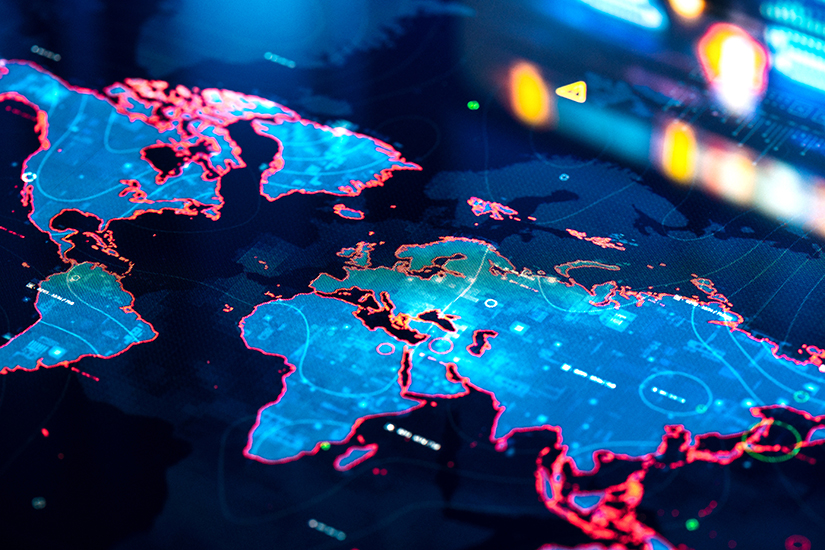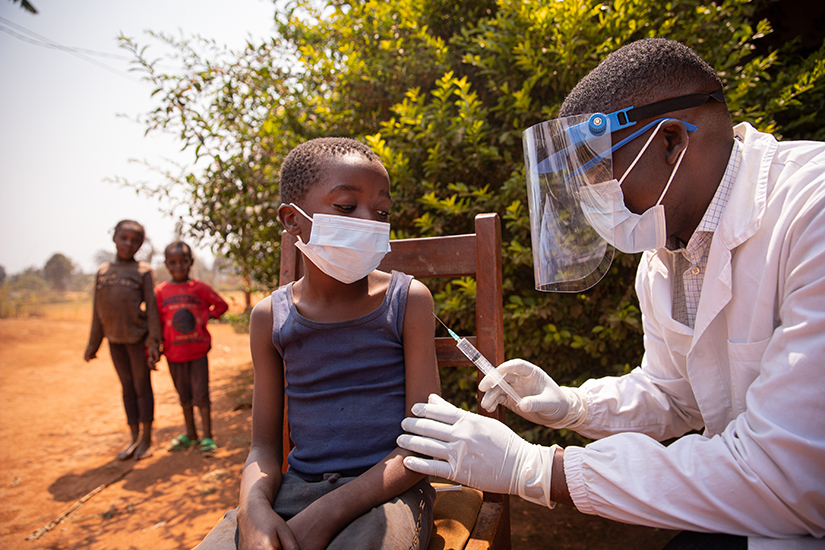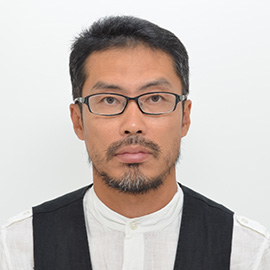A return to Nehruism?
Our G20 priorities will be shaped in consultation with not just our G20 partners, but also our fellow-travellers in the Global South, whose voice often goes unheard.[1]
On December 1, 2022 as India assumed the G20 Presidency from Indonesia, India’s Prime Minister Modi made this statement in an article he published in a local newspaper of record. Subsequently, in the new year, on January 12 and 13, 2023, the Indian government hosted an online meeting of developing countries called the Voice of Global South Summit.
The India of the Cold War era led by Jawaharlal Nehru, Indira Gandhi and others spearheaded the Non-Aligned Movement and saw itself as the leader of the developing countries. However, in recent years Indian diplomacy has focused on strengthening relations with Western developed countries such as Japan and the United States, while it has largely neglected solidarity with developing countries. That trend became particularly noticeable after the inauguration of the Modi administration. For example, the prime minister himself has not attended the Summit of Heads of State and Government of the Non-Aligned Movement, instead sending the vice-president as his representative. Furthermore, concerning the Kashmir issue and border issues with China, the Modi administration and the ruling party, the Bharatiya Janata Party (BJP), have strongly condemned “Nehru’s grave error” and have made the claim that the current administration is trying to rectify it.[2]
If we take these matters into consideration, Prime Minister Modi’s recent words and actions emphasizing “solidarity with the Global South” may seem strange. It has been pointed out that Prime Minister Modi appears to have returned to Nehruism, which positioned India as the leader of developing countries.[3] What happened?

Voice of Global South Summit: the gulf with the West, India pursuing reasonableness
Indian Foreign Secretary Kwatra said that the holding of this summit was in line with the intentions of Prime Minister Modi, quoted at the beginning of this article, regarding how India would approach the G20 Presidency, and emphasized that India has continued to be a champion of the developing world.[4]
While the event was named a summit, only the first and last sessions were literally at the head of state or government level; the remaining eight sessions were held at the ministerial level. Although a total of 125 countries is said to have participated overall, each country participated in only some of the sessions and there was no joint declaration or other outcome documents, suggesting that it was actually a small-scale exchange of views. China, Pakistan, and Afghanistan did not participate in any of the sessions, albeit the Indian government has not revealed the countries to which it sent invitations.[5]
At the Inaugural Leaders’ Session on the first day attended by the leaders of ten countries including Bangladesh, Cambodia, Vietnam, Thailand and Mongolia, Prime Minister Modi mentioned COVID-19, climate change, terrorism, and the war in Ukraine and emphasized his perception of the key issue, namely, that developing countries are being made to suffer and this is the fault of the developed countries, saying “most of the global challenges have not been created by the Global South. But they affect us more.” Additionally, he expressed the dissatisfaction that “the search for solutions also does not factor in our role or our voice.” Therefore, he called for the Global South to unite to redesign the current unequal political and economic governance. Moreover, he expressed a determination to act as an advocate for the Global South while holding the G20 Presidency, saying “your Voice is India’s Voice. Your Priorities are India’s Priorities.”[6]
At the Foreign Ministers’ Session on the second day as well, External Affairs Minister Jaishankar raised the various issues faced by the Global South, including the debt issue and rising prices for fuel, food and fertilizers as a result of the war in Ukraine, and criticized the fact that “some powers have been singularly focused on their own advantage.” Furthermore, regarding the neutral posture of India with respect to the war in Ukraine, he recalled the former Non-Aligned Movement and called for the understanding and cooperation of each country, saying “the Global South has always shown the middle path.”[7]
The gulf is deepening between the West, which is criticizing Russia, strengthening sanctions, and enhancing military support for Ukraine, and the Global South, which claims that the prolongation of the war is bringing about economic misery. India itself is not joining in the West’s sanctions, and is managing to cope with the situation by purchasing oil and fertilizers from Russia. If we consider these matters, we can conclude that emphasizing that India itself is a member of the Global South is an extremely reasonable action for India,[8] which cannot renounce its strategic relationship with Russia for armament and geopolitical reasons.

Actions going forward which will be called into question: will India aim to be a world power or continue standing on the side of the developing countries?
On January 26 the annual Republic Day ceremony of India was held. It had been cancelled in the previous two years due to the impact of COVID-19, but normally a leader from overseas is invited to the ceremony as the Chief Guest every year. This year’s Chief Guest was President Sisi of Egypt. In India, Egypt is remembered as one of the co-founders of the Non-Aligned Movement, together with Yugoslavia, Indonesia, and Ghana. Gamal Abdel Nasser, the president of Egypt at the time, was an ally of Nehru. It can be seen that inviting the Chief Guest from Egypt was a manifestation of the intention of the Modi administration to attempt to strengthen its involvement in the Global South based on the ties of the Non-Aligned Movement era.[9] The Joint Statement after the summit meeting mentioned the Non-Aligned Movement and reaffirmed its founding values. In addition, the two countries agreed that Egypt would be invited to the G20 as a Guest Country and that they would give focus to the interests and priorities of the Global South.[10]
It appears that the policy line of the Modi administration emphasizing solidarity with the Global South is supported by diplomats and researchers from older generations in India in particular. However, the issue is whether this policy line does not contradict with India’s ambition to become a world power.[11] In his Independence Day Speech in August 2022, Prime Minister Modi set out the goal of “India becoming a developed nation in the next 25 years.”[12] In this regard, will India continue to stand on the side of the Global South and champion the interests of the Global South?
Whether India can play the role of a bridge between the developed countries and the Global South as the holder of the G20 Presidency may become a key test of that.

(2023/02/27)
Notes
- 1 Narendra Modi, “India’s G20 Agenda Will Be Inclusive, Ambitious, Action-oriented, and Decisive,” The Hindu, December 1, 2022.
- 2 For example, “Amit Shah Credits Modi for ‘resolving’ J&K Mess Left by Nehru,” The Hindu, October 13, 2022.; “This Isn’t Nehru’s, but Modi’s New India: BJP after Rahul’s Remarks on Chinese Threat,” The Hindu, December 17, 2022.
- 3 Seema Guha, “Energising India’s Constituency of the Global South,” Outlook, January 13, 2023.
- 4 Shubhajit Roy, “India to Virtually Host Voice of Global South Summit, 120 Countries to Be Invited,” Indian Express, January 7, 2023.
- 5 Ministry of External Affairs, “Summary of Deliberations: Voice of Global South Summit 2023,” January 13, 2023.
- 6 Ministry of External Affairs, “Prime Minister Shri Narendra Modi’s Opening Remarks at the Inaugural Leaders’ Session of Voice of Global South Summit 2023,” January 12, 2023.
- 7 Ministry of External Affairs, “Opening Remarks by External Affairs Minister, Dr. S. Jaishankar at the Foreign Ministers’ Session on G20 of the Voice of Global South Summit,” January 13, 2023.
- 8 Toru Ito, “After Ukraine Invasion, India Struggles to Define Relations with ‘Special Partner’ Russia,” International Information Network Analysis (IINA), March 24, 2022.
- 9 Suhasini Haidar, “In President Sisi Visit, India and Egypt Look to Rekindle Non-aligned Era Ties,” The Hindu, January 25, 2023.
- 10 Ministry of External Affairs, “India-Egypt Joint Statement during the State Visit of the President of Egypt to India,” January 26, 2023.
- 11 Vivek Katju, “Global South Expects Results,” The Tribune, January 18, 2023.
- 12 “Independence Day: PM Modi Sets ‘Panch Pran’ Target for Next 25 Years,” Indian Express, August 15, 2022.

